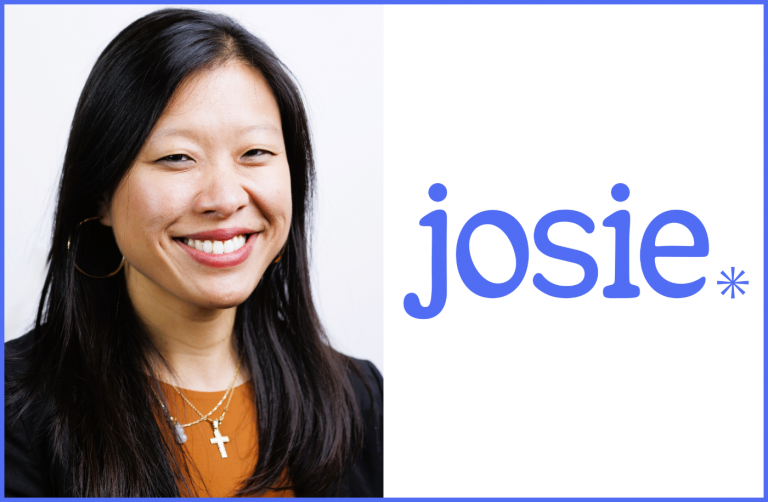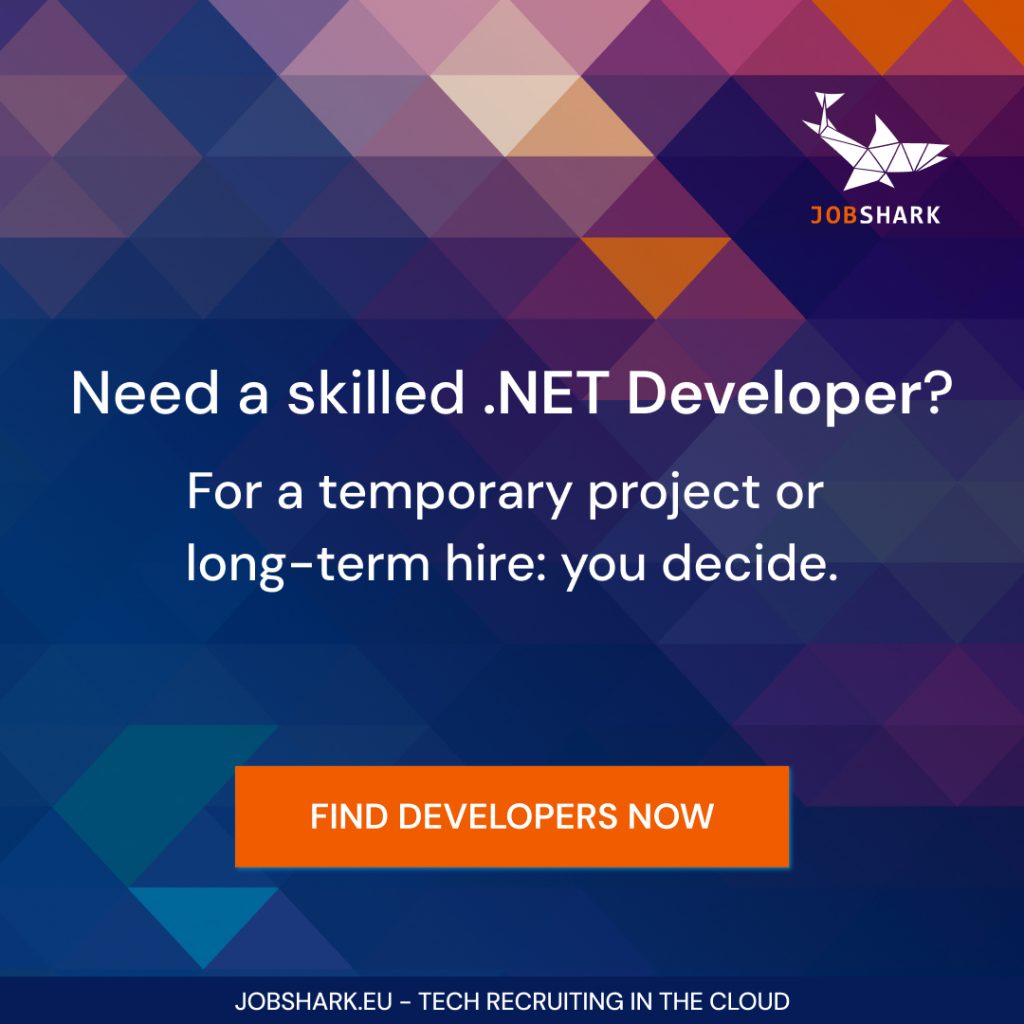Parenthood is a catalyst for invaluable soft skills — from empathy and resilience to prioritization, problem-solving, and leadership — and as such, it can be a win-win for both working parents and their employers. With this belief at the core of her work, former management consultant turned startup founder Michelle Yu leads Josie, a business that offers tailored coaching for parental leave and the early years of working parenthood.
The program stems from her conviction — rooted in her own experience as a mother of two — that support for working parents must go beyond a simple benefits checklist; it needs to be part of the company culture. The return on that investment is clear: when organizations meaningfully support working parents, they benefit from higher talent retention, stronger engagement, and significantly lower recruiting costs — all while fostering a more inclusive workplace.
As Josie celebrates its third anniversary — and the major milestone of a partnership with Google — Yu shared with TechTalents Insights the surprises and lessons that have shaped her journey as a founder so far. She also opens up about what she wishes she’d had during her own transition into motherhood, and breaks down the most common assumptions about commitment and parental leave that still persist in corporate culture and must be challenged.
As she puts it: “The bias isn’t always malice. It’s often managerial muscle memory. We just haven’t taught leaders how to navigate this stuff.”
Read on for valuable insights on how working parents and their employers can thrive together.
TechTalents Insights: Congratulations on Josie’s third anniversary! What have been some of the biggest surprises, lessons, or milestones along the way?
Michelle Yu: Thank you! I’m equal parts proud and exhausted. But yes, I have learned so many things along the way.
The biggest surprise is that there is value in my story as a working mom. Honestly, until I launched this company, I did not think my lived experience was a meaningful one to share. But this experience has forced me to tell it — and I cannot believe how my honest telling of the challenges I experience, as well as my wins, has resonated with so many people.
The biggest lesson is that nobody reads your product decks. Okay, I say that with a little exaggeration, but the truth is, when I first went to market, I spoke at people. I was armed with my PowerPoint slides and rehearsed a speech about why every employer needed Josie — right now. The problem was that I wasn’t listening to them. I didn’t take the time to understand the needs and challenges of buyers. Over time, I’ve learned that partnership is built on trust and understanding — but I learned this the hard way.
The biggest milestone was doing our first event with Google in June this year. I never would have imagined getting a brand like that as a partner, but here we are!

TechTalents Insights: You had already become a mother by the time you founded Josie. Looking back, how do you think your own maternity leave experience might have been different if a program like Josie had existed at the time?
Michelle Yu: So much would have been different. Back then, I tried to act like nothing had changed — like I could be the same ambitious, always-on consultant I was before, just now with a baby and a breast pump. Spoiler: I was not okay.
I said yes to everything. I had a ton of resentment, not because anyone was treating me poorly, but because I had no idea how to communicate my needs, nor did I know my own boundaries.
When people ask me why I built Josie, I tell them: “I just built something that I wish I had.”
If I had someone to talk to back then — right around that time when I was in the throes of new motherhood and getting right back on the road leading client meetings — it would have made a world of difference. I would have gotten more clarity on my values. My priorities. My needs. How to ask for help. How to advocate for myself in a way that felt good. How to lean on others. How to show others that motherhood was actually strengthening my leadership skills, not detracting from them.
TechTalents Insights: What are some common biases or assumptions that leaders might hold — consciously or not — about new or expecting parents on their teams?
Michelle Yu: Oh, where do we begin?!
For example: “New parents are less committed.” Nope. In fact, our internal data at Josie shows that a majority of our clients are excited about returning to work — they can’t wait to have adult conversations, use parts of their brain that have nothing to do with swaddling and nap times, and get time to nurture their identities outside of being parents! The challenge is, while they are excited, they are also terrified about how they will make it all work — that’s where we come in.
Another bias is: “Let’s not bother them with stretch roles or big project opportunities.” Big mistake. Career-limiting courtesy is still career-limiting. The reality is, everyone’s experience will look different, and as a people leader, we shouldn’t make assumptions. The key here is to get curious — asking simple, open-ended questions to your returning employees goes a long way. “How are you feeling about taking on this new project?” or “What is most important to you right now as you think about your role?”
Finally, there’s “Let’s stick with the status quo.” Look, we often get stuck in working the same ways we always work. We have the same recurring meetings, the same approach to client projects, and the same process for internal deliverables. The great thing about any sort of life event — such as parental leave — is that it creates a forcing function for everyone to look at how things are being done and reevaluate if it still makes sense. For example, when someone is expecting and needs to transfer ownership of responsibilities, it’s a perfect time to ask: Which of these things needs to be taken on right now? Which of these things can maybe be done differently?
The bias isn’t always malice. It’s often managerial muscle memory. We just haven’t taught leaders how to navigate this stuff.
TechTalents Insights: How has your view of parental support in the workplace evolved since starting Josie, and what do you wish more companies/leaders understood?
Michelle Yu: This one is easy: culture eats policies and benefits for breakfast.
I’ve seen companies with over 20 weeks of fully paid leave, and yet the culture is not one that is supportive of professionals who need to balance their ambitions with family life. So people leave — often.
Then I’ve seen companies that have shorter leaves — often they are smaller and budget-constrained — but are doing everything they can to ensure people feel supported. They train managers on how to show up with empathy. They welcome people back and have thoughtful reboarding processes. They make it easy for the person to understand what their leave benefits are and what their compensation will look like, without having to call one hundred different people and third-party vendors. They bring in thoughtful, parental-leave-focused support systems like Josie.
Support has to be lived, not just listed in the handbook. It’s in the one-on-one check-ins, the flexibility around a sick kid, and the way a manager reacts to someone setting a boundary.
And one more thing. I wish more leaders understood this: supporting working parents isn’t a perk. It’s a strategy. You want to retain your talent? Build the kind of culture they can picture staying in as their life evolves.

TechTalents Insights: What’s next for Josie? Are there any upcoming initiatives, products, or ideas you’re particularly excited to explore?
Michelle Yu: Yes! We’re launching a new content library with videos, playbooks, tip sheets, and script sheets for all working parents, as well as managers. It’s made with so much love, humor, passion, and care from my leadership team and our Josie community of experts. So many employers have been asking for it, and I cannot wait for it to launch.
Also, I might write a book called “Nobody Cares About Your Startup (And Other Lessons From a 40-Something Founder),” based on my TEDx talk of the same name. Stay tuned!
Subscribe to the TechTalents Insights newsletter
If this content brought you value, our newsletter will too. Join the TechTalents Insights community for actionable trends and expert guidance delivered bi-weekly — all for free.




